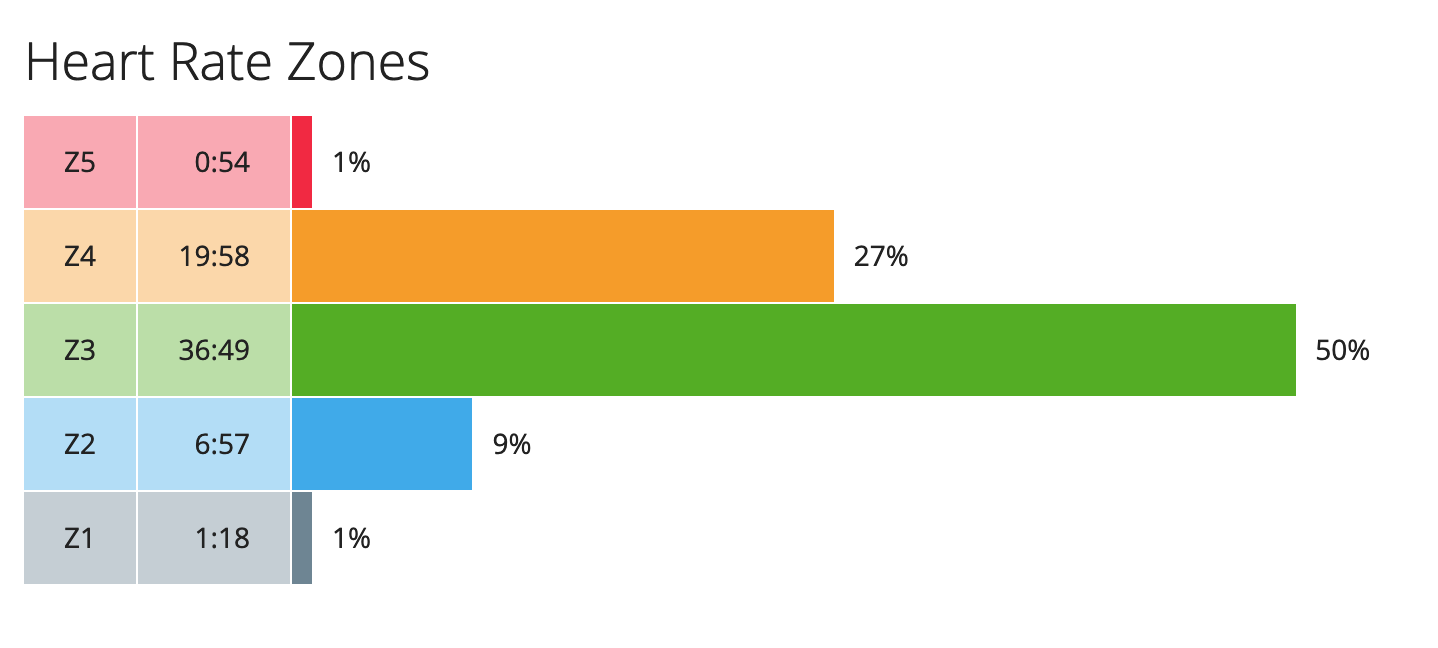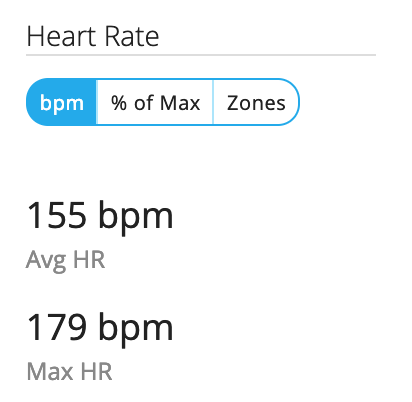SNAPSHOT
My take on heart rates and running training
DIGGING DEEPER
Since so many training watches are now monitoring our heart rates, I am sure the awareness of your beats have spiked. Here are my quick thoughts on why and what you should pay attention to when it comes to your beats per minute.
RESTING Heart Rate
early morning measurement, before your body stirs and awakes
Avoid overtraining and get a heads up if your body is fighting a sickness by watching for a spike that lasts more than a day. My other favorite about Resting Heart Rate is the data behind fitness. The more fit I am the lower my resting heart rate.
On a run several years ago with Joan Benoit Samuelson, I got to ask her one question. Mine question was: What is your resting heart rate? Answer: 35! Even in her 60’s she is SUPER FIT!
Last week’s data, the spike was after losing 3 hours of sleep due to an early morning airport drop off
Aerobic Threshold Heart Rate
measures the highest beats your body can effectively use and not become overwhelmed by lactate
Last month I had by lactate threshold tested in the St. Cloud Human Performance Lab. It included lactate blood tests and heart rate monitoring while running faster and faster on a treadmill. The heart rate in which my lactate levels spiked paired with my heart rate data gave me my threshold. I use this heart rate number to train my body to endure at a faster pace with out lactate accumulation. Hovering just above 164 beats will improve not only my threshold but also my overall running.
A tempo (just above the aerobic threshold) paced workout can be seen in the Zone 4, orange bar.
AVERAGE HEART RATE
measures my heart rate throughout the entire run and calculates the average
When reviewing my past run, I grab a quick look at the average beats. This information usually supports my feelings about how hard or easy the run felt. If they don’t line up I know I need to dive into the data a bit more and see if there is a reason. The average heart rate can also tell me if my body is getting the sleep, nutrition, and recovery I need.
Seen below are two averages, easy paced run (left), difficult workout (right), both within a few weeks of each other.
Year to Year Race Comparison
Favorite races often get repeated year after year. Through viewing my average heart rate data for each race I can see how my fitness has progressed or changed. Sometimes the weather and road conditions need to be taken into account when I am deciphering the data.
SOLUTION
Count your beats, but don’t let them hold you back!






